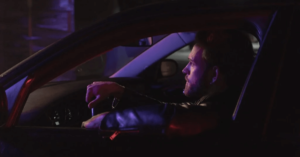If an individual in Queensland is caught drinking while under the influence of alcohol, or exceeding the legal limit for blood alcohol content (BAC), they will be charged with committing an offence.
Drink driving is dealt with under the Transport Operations (Road Use Management) Act 1995.
Facing a drink driving charge can be overwhelming and stressful, but it’s crucial to remember that you have legal options and rights.
So, in this article, for How do I beat a drink driving charge in QLD? we will explore practical strategies that can help you protect your rights.
For more information on drink driving laws in Queensland
How do you get charged with drink driving?
In Queensland, you can get charged with drink driving in several ways. Any amount of alcohol in your system while driving can potentially lead to a charge. Here are the ways individuals can be charged with drink driving in QLD:
Random Breath Testing (RBT)
Police officers have the right to perform random breathalyser tests at any time. The breath-testing device analyses a sample of your breath. If you have consumed alcohol then it will enter your bloodstream and eventually your lungs where it will be present in a person’s breath when they exhale. The breathalyser takes this breath sample, which then analyses it to examine how much alcohol is in the subject’s system. So If you are stopped at an RBT site, and your breath test indicates the presence of alcohol, you can be charged with drink driving.
Refusing a Breath Test
If you refuse to undergo a breath test when requested by a police officer, it is considered an offence. Refusing a breath test can result in charges similar to those for drunk driving, and you may face penalties and licence suspension.
Also read: Mid-Range Drink Driving QLD: Definition and Penalties
Positive Blood Test
In some cases, the police may request a blood test instead of, or in addition to, a breath test. If your blood test results show a BAC above the legal limit, you can be charged with drunk driving.
Suspicion of Impairment
If you are suspected of being impaired while operating a vehicle or motor vehicle, a police officer may request that you perform in a series of actions to assess your condition and gauge if you are driving under the influence. These actions can include:
- Field Sobriety Tests: The officer may ask you to perform a series of physical or cognitive tests known as field sobriety tests. These tests assess your coordination, balance, and mental acuity. Standard field sobriety tests include the walk-and-turn, one-leg stand, and horizontal gaze nystagmus tests.
- Observations and Interviews: The officer will observe your behaviour, speech patterns, and other impairment signs. They may also ask you questions related to your alcohol consumption, where you were coming from, and if you have consumed any drugs.
- Involved in an Accident: If you are involved in a traffic accident, regardless of whether it was your fault, the police may attend the scene and conduct breath or blood tests to determine if alcohol was a contributing factor. If your test results indicate a blood alcohol concentration (BAC) over the legal limit, you can be charged with drink driving.
Need a Lawyer?
How can I get out of a drink driving charge?
At Walker Pender Group, we understand the complexities of drink driving in Queensland. Here’s what you should do if you are charged with a drink driving charge:
Seek Professional Legal Advice
How do I beat a drink driving charge in QLD? One of the first and most crucial steps you should take when facing a drink driving charge is to seek professional legal advice. Consulting with a skilled and experienced Drink Driving Lawyer is essential in understanding your rights, the legal process and building a solid defence strategy. They will assess the details of your case, gather evidence, and provide expert guidance tailored to your situation.
Cooperate with Authorities
It’s essential to maintain a cooperative and respectful attitude when dealing with the police and other authorities. Cooperate with their instructions and provide the necessary information, such as your identification and registration details. Resisting or being uncooperative can escalate the situation and negatively impact your case.
Breathalyzer Test’s Accuracy
Breathalyser machines are imperfect, and their readings may include mistakes or incorrect information. By questioning the calibration and maintenance records of the device or providing proof that your blood alcohol concentration (might have been affected by other causes, such as breath alcoholic medicines or health issues, you can dispute the accuracy of the breathalyser test results.
Investigating Procedural Errors
Law enforcement officers are required to follow specific procedures when conducting breath tests and collecting evidence. Suppose any procedural errors occurred during your arrest, such as improper handling of breath samples or failure to adhere to the prescribed protocols. In that case, there may be grounds to challenge the validity of the evidence.
Avoid Repeat Offences
Learn from this experience and commit to never driving under the influence again. Take steps to educate yourself about responsible alcohol consumption and the potential consequences of drink driving. By making responsible choices in the future, you can prevent further legal issues and prioritise the safety of yourself and others on the road.
Now that you’re all set, what are the final thoughts?
Don’t assume that pleading guilty is your only choice. Our traffic lawyers are ready to provide the support and guidance you need to challenge the charge, protect your rights, and achieve the best possible outcome. Let us help you understand your options and fight for a favourable outcome to your drink driving case!



